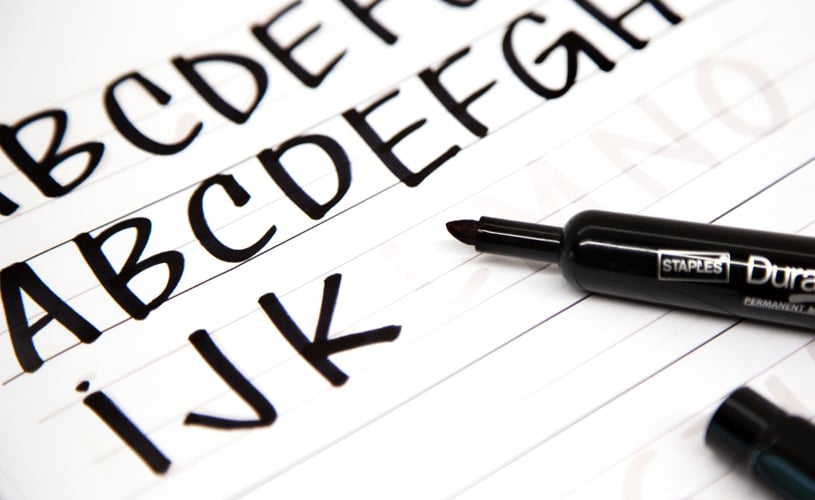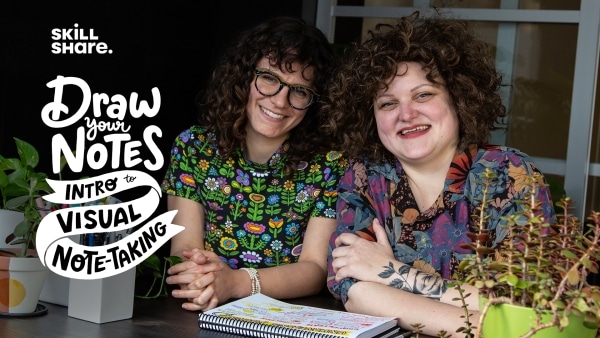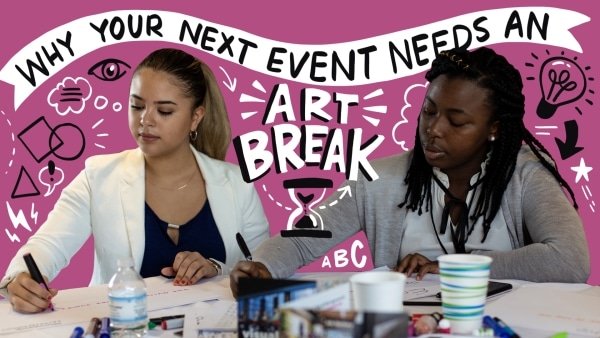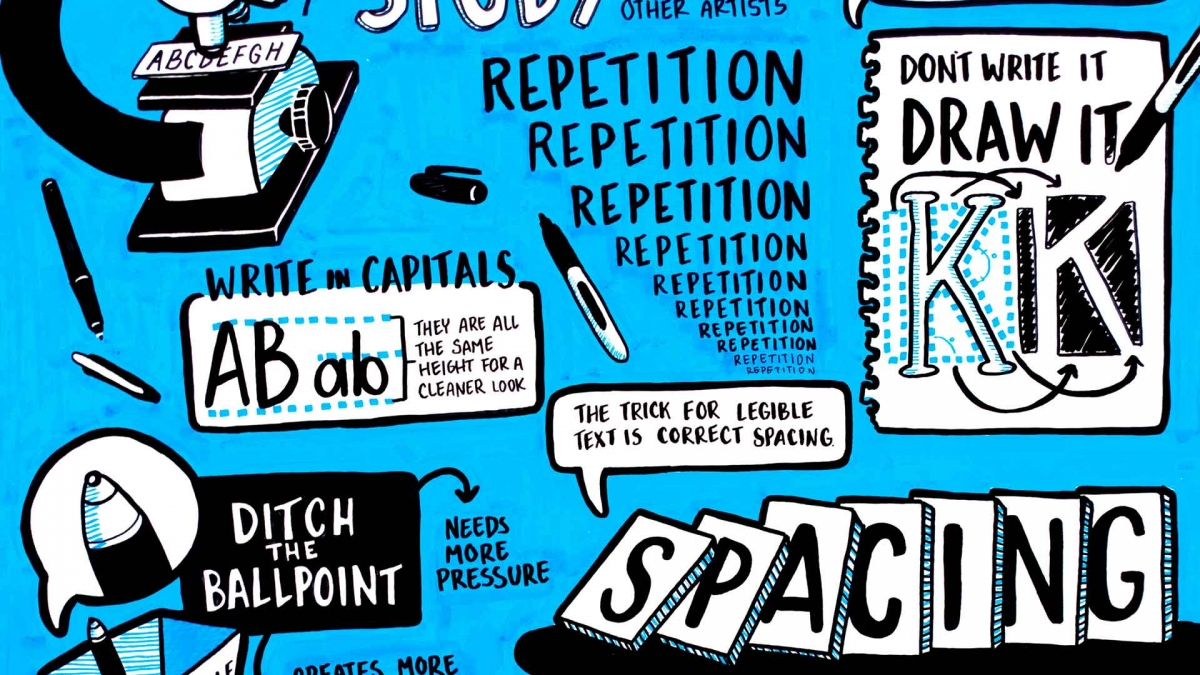
Simple Tips To Improve Your Handwriting
Although we live in a digital age, writing by hand is still woven throughout our daily lives. You might scribble down a grocery list, take notes in an office meeting, or write your next big idea on the back of a napkin. If you (or anybody else) can’t read your handwriting, it can be an annoyance at best, and a roadblock at worst! Working to improve your handwriting means working to be a better communicator. And to top it all off, taking handwritten notes is superior to typing for memory and learning.
Why Improve Your Handwriting?
We all know communication is key to a successful business, a successful marriage, and of course, a successful life! People have a tough time getting through the world when they can’t communicate well.
Ink Factory uses visuals as a stronger and more engaging form of communication. But did you know that letters themselves are visuals too?

If you aren’t creating legible letters, then you aren’t doing it right! Legible (dare we say neat) handwriting is an awesome way to improve the way you communicate with your co-workers – and even yourself! (Have you ever been stumped by something you wrote on your calendar two weeks ago?)
And if you needed another reason to get off of your laptop and write by hand more often, it’s proven to increase creativity and help us learn.
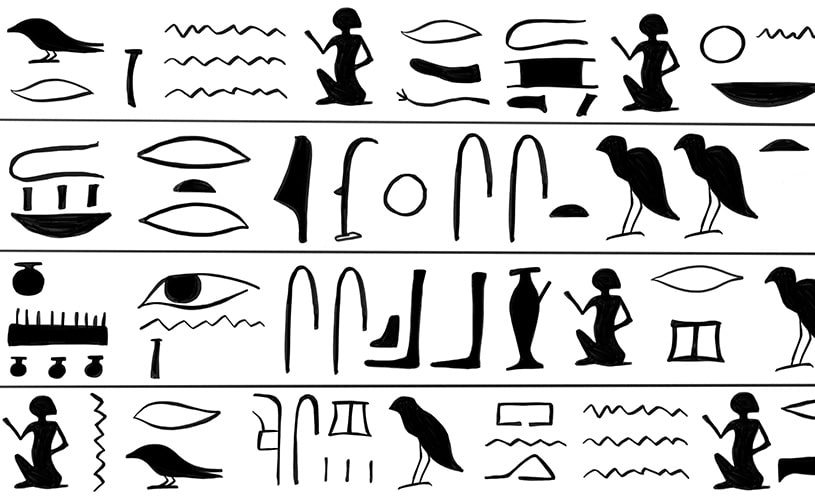
The written word as we know it today stems from Pictography and Logograms. Ancient people used abstracted visual pictures to communicate ideas for trading goods, and those pictures later evolved to communicate sounds, which were put together to form words.
So next time you are about to write a letter…draw it instead!
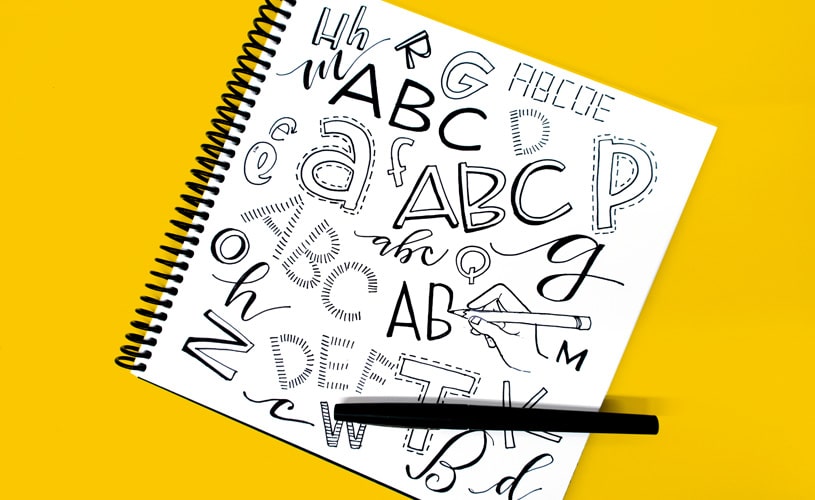
The Best Ways To Improve Your Handwriting
When we train our new artists, we tell them to think about “drawing” letters instead of writing them. That helps them to be more conscious of the proper angles and shapes of each letter. But neat handwriting is more complicated than you might expect! There are a couple of other guidelines we have here at Ink Factory for achieving clean and legible handwriting.
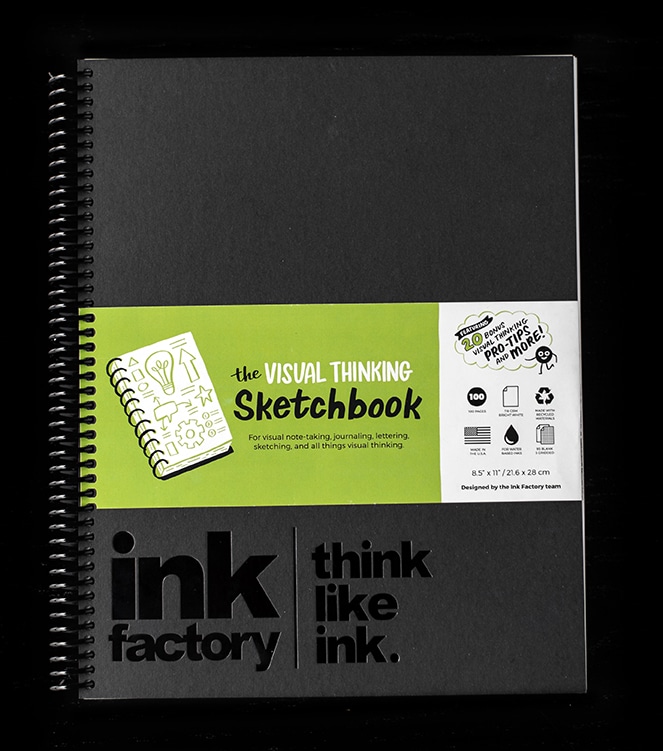
The Visual Thinking Sketchbook
No Ballpoint. Pens. Ever.
Ballpoint pens are banned at Ink Factory. Why? They create extremely thin, faint lines, and require more pressure on the page than a marker. When you’re writing for long periods of time, as fast as possible, you want a pen that’s going to give you the least amount of friction. That means a softer tip with more ink. We recommend a Paper Mate Flair pen for writing on a small scale. Flairs can create various thicknesses depending on the amount of pressure you apply to them, and they create a nice visible black line.
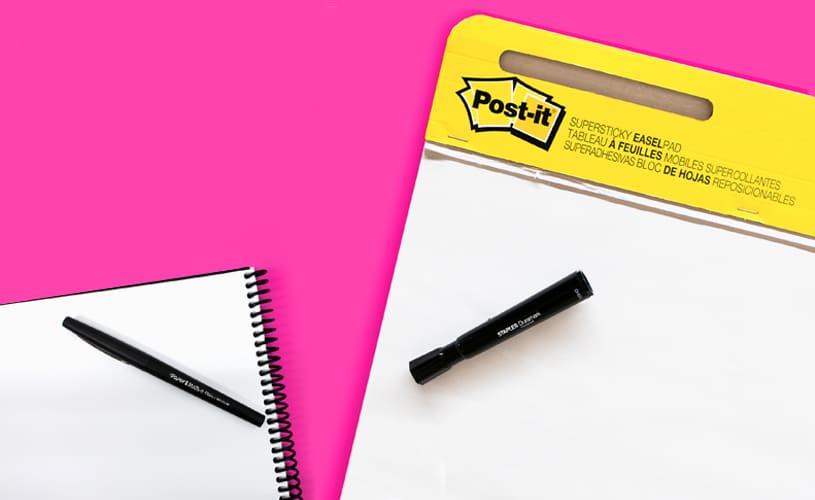
Match the size of your tools to the size of your canvas
If you’re using an office pen on a flip chart, no one is going to be able to read it. Make sure the thickness of your drawing tool is visible on the surface you’re writing on.

Writing in all caps will quickly improve your handwriting
If you browse through our graphic recordings, you’ll notice that 90% of the time we write in all capitals. That’s because capital letters are all the same height, which gives a cleaner and more legible look.
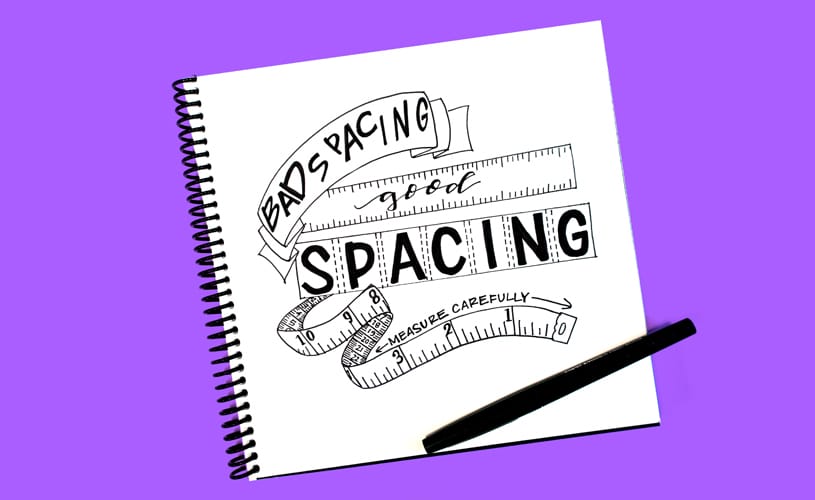
Pay attention to spacing
Proper spacing is crucial to keeping your text legible. Spacing between each letter, each word, and each line of text keeps letters from running together. Writing slow and steady will help keep spacing consistent.
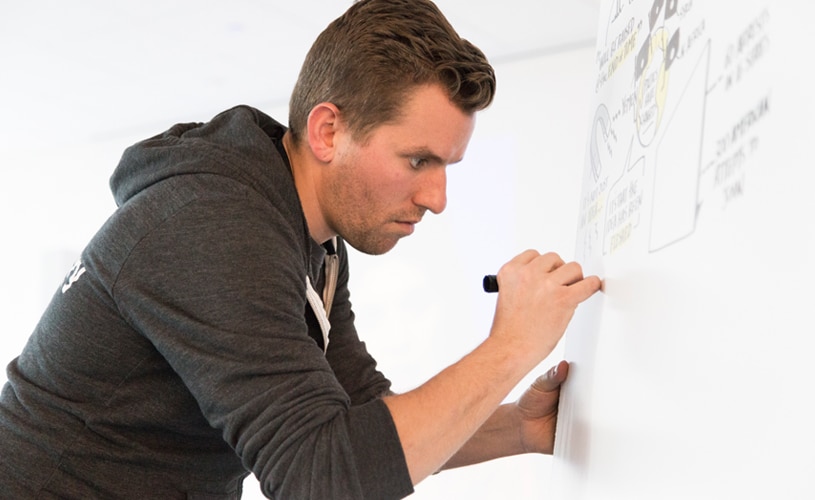
Use your pinky
If you’re writing standing up (like on a whiteboard), rest the pinky of your dominant hand against the wall. This steadies your hand and prevents you from smudging what you have written.

Are you ready to improve your handwriting?
Download our worksheet to complete the following easy exercises to improve your handwriting. You can print the worksheet out or load it into your favorite drawing program. Like any skill, having “good” handwriting takes practice. Complete these easy exercises to improve your handwriting and achieve perfect penmanship.
Download the practice worksheet
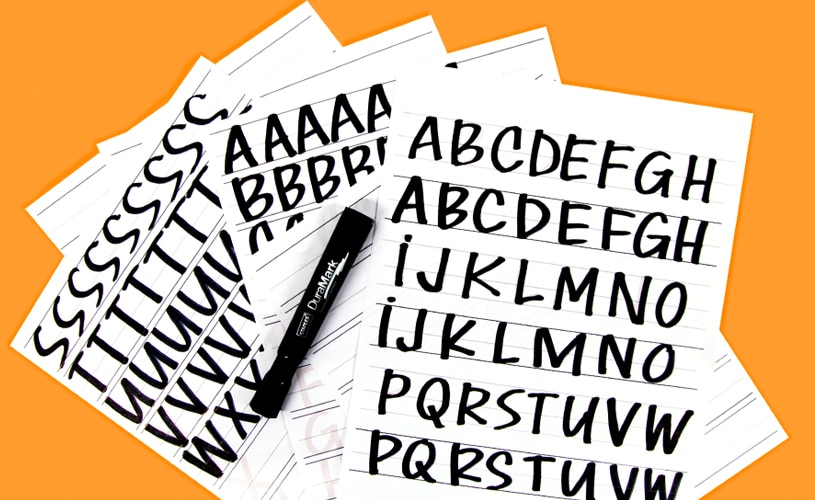
Handwriting Exercise 1
Draw the Alphabet
Using our alphabet in the worksheet as a reference, draw each letter, both skinny and thick versions. Pay attention to the angles and curves of each letter. Go as slowly as you need to create the best version of the letter you can.
When you’re done step back and compare each letter you drew to our original alphabet. Which ones look slightly off and which ones did you nail? If any letters look funky to you, re-draw them and study which angles and curves are different than ours.
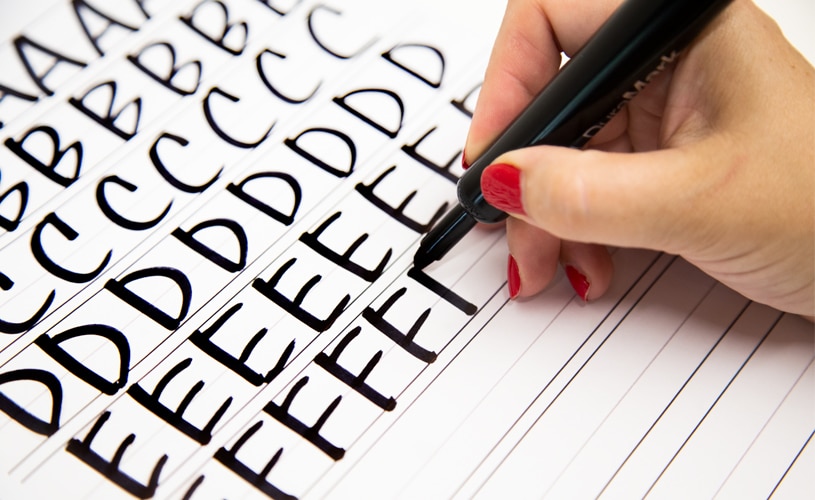
Handwriting Exercise 2
Wash, Rinse, Repeat, Repeat, Repeat
Like any skill, having “good” handwriting takes practice. Keep on repeating these easy exercises to improve your handwriting and achieve perfect penmanship. Use the next section of the handwriting worksheet to develop your muscle memory for drawing each letter. After you’ve mastered the tracing section, try drawing the alphabet without a guide, and compare your work to the original letters.
You will improve most in the long-term by practicing a little each day, rather than a bunch in one sitting. Every artist will tell you that!
As you repeat, speed up the pace of drawing the letter each time. Eventually, you will be able to write as fast as your “old” style of handwriting.
Handwriting Exercise 3
Implementation
In the blank section of the writing worksheet, try implementing your upgraded handwriting by writing a few sentences about yourself, your day, or anything you feel like! Draw slowly and steadily, and pick up the pace as you progress.
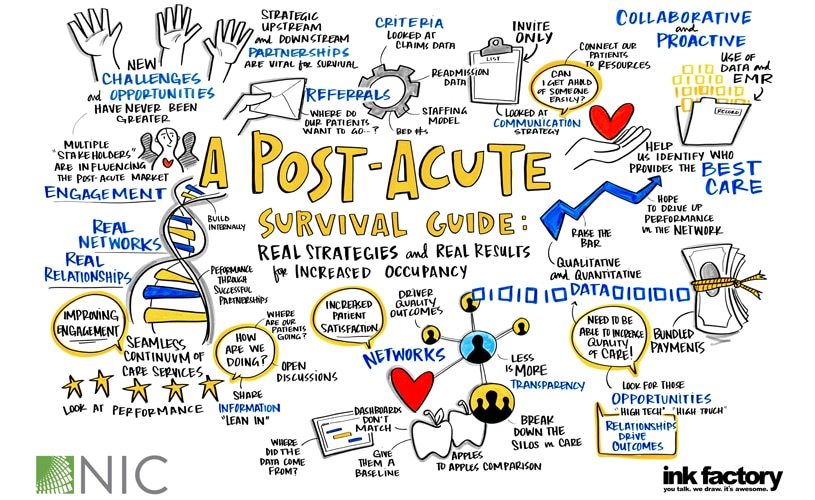
Make it your own
All of our artists here have developed a unique handwriting style, almost like a fingerprint! We can look at an artist’s work and tell who did it from their handwriting alone (we have to get creative with ransom notes around here). When you’ve mastered clean and legible handwriting, don’t be afraid to have fun with your letters and make your handwriting unique. Can you tell the difference between the handwriting among the artists here at Ink Factory? Study what makes each one special and get inspired to add a unique twist to your own style.

Wait, there’s more! Subscribe to the Ink Factory newsletter to learn the latest on visual trends.
With a community of 4,000+ visual thinkers, you’ll be in good company. Join us!
